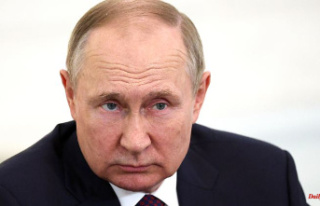The coalition agreement of red-green in Lower Saxony is: Among other things, Lower Saxony should be climate-neutral in 18 years at the latest, it says. However, the country's economic power should not suffer as a result, the partners assure us - on the contrary.
After the conclusion of their coalition talks, the SPD and the Greens in Lower Saxony presented the key points of their future joint government. According to the coalition agreement that has now been presented, the federal state is to become climate-neutral by 2040. Prime Minister Stephan Weil from the SPD and the Green Party negotiator Julia Hamburg praised the atmosphere and spoke of a good result.
Both parties want to step up climate protection efforts at state level. Gradual climate targets are set for the path to climate neutrality. Corresponding programs are to reduce carbon dioxide emissions by 75 percent by 2030. At the same time, the parties affirm that the economic power of the federal state should be maintained and strengthened. Lower Saxony is also an important industrial location.
In addition, among other things, the starting salary for teachers is to be increased. The SPD and the Greens want to react to the shortage of skilled workers in the education sector and attract more applicants. Accordingly, all teachers at primary, secondary and secondary schools should in future be paid according to salary group A13. This also applies to teachers who are already working in the school.
According to their own statements, the SPD and the Greens used a large part of the coalition talks to plan a large state-owned aid program against the current energy price crisis. Minister President Weil of the SPD had already announced this during the election campaign. The package has a volume of almost one billion euros and provides aid for citizens, municipalities, clubs and social institutions. Lower Saxony wants to use it to supplement federal aid or bridge the time until it is paid out.
In the fight against scarce living space and rising rents, Lower Saxony will rely on a non-profit state housing association in the future, according to the will of both parties. It is to be founded in the first year of government and build, buy or renovate apartments.
The red-green contract also provides for an expansion of the organic farming area in Lower Saxony to at least ten percent by 2025 and at least 15 percent by 2030. According to the will of both parties, agriculture and associated companies in the manufacturing sector should be supported, for example in the context of investment promotion. Overall, the agricultural sector is an important branch of the economy in Lower Saxony.
Weil spoke of a "strong foundation" for the work of the coming years. It was not his first coalition talks, but "the most pleasant". At the joint presentation of the coalition agreement, Green negotiator Hamburg spoke of "extremely constructive and goal-oriented talks" with the SPD. Her party was "completely satisfied with the overall result," she added.
A new state parliament was elected in Lower Saxony on October 9. Shortly thereafter, the SPD and the Greens began their negotiations and concluded them within around three weeks. Both parties had already announced during the election campaign that they wanted to form an alliance. Other coalition options were not explored.
The SPD had won the state election with 33.4 percent. The CDU came to 28.1 percent. With 14.5 percent, the Greens became the third strongest force ahead of the AfD, which achieved eleven percent. FDP and left did not get into the state parliament. In the new state parliament, the SPD and the Greens together make up 81 of 146 MPs, and the majority required to form a government is 74 seats.
According to the coalition agreement, the SPD will have six ministers in the new state cabinet alongside Weil as prime minister, and the Greens will have four. Hamburg becomes Deputy Prime Minister and Minister of Education at the same time. The Greens also provide Environment and Climate Minister Christian Meyer, Finance Minister Gerald Heere and Agriculture Minister Miriam Staudte.
Interior Minister Boris Pistorius and Social Affairs Minister Daniela Behrens will remain in their posts in the SPD, while the former Environment Minister Olaf Lies will take over the Ministry of Economic Affairs. Justice Minister Kathrin Wahlmann, Minister for Federal and European Affairs Wiebke Osigus, and Science and Culture Minister Falko Mohrs also come from the SPD.












